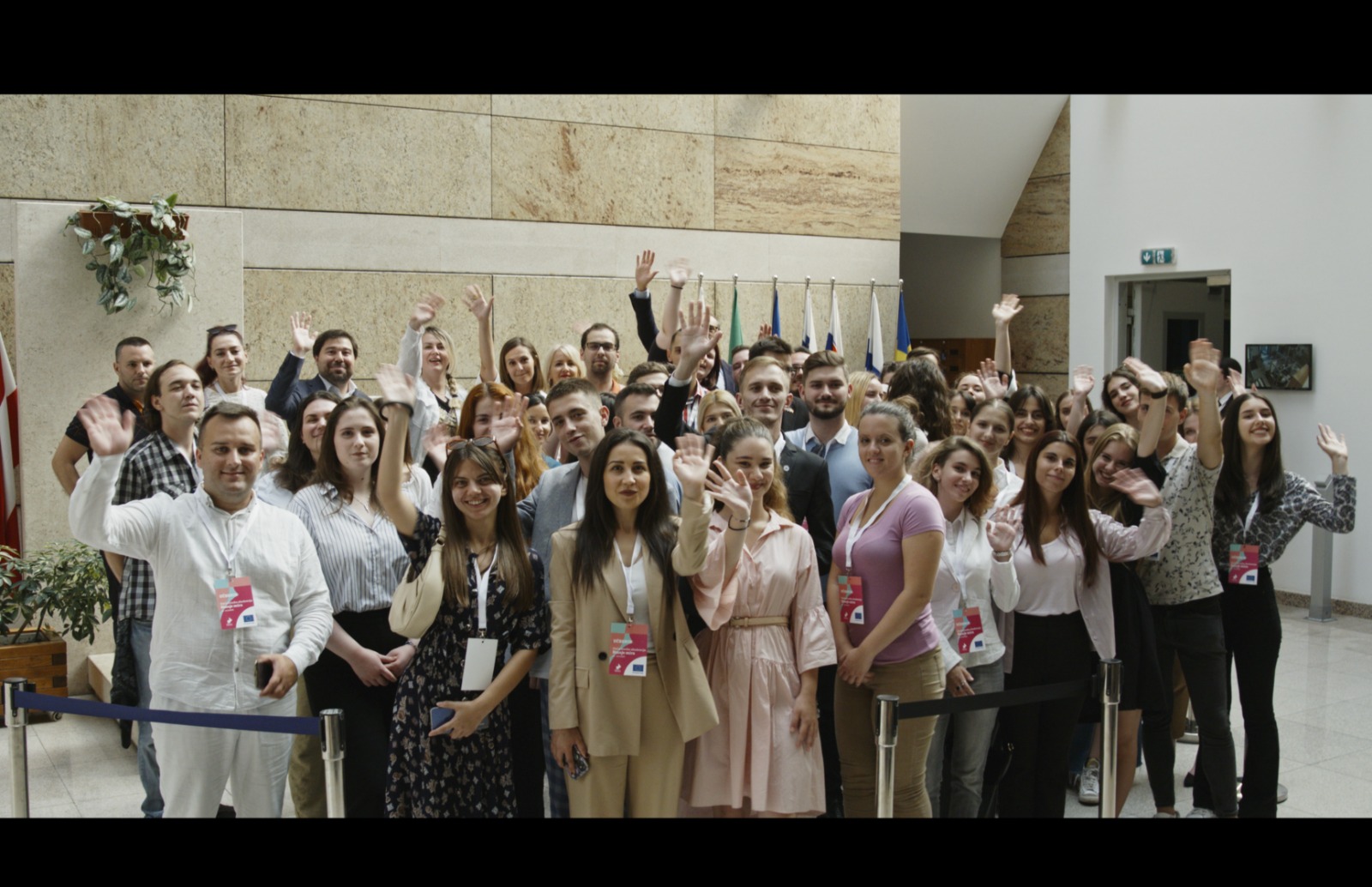
A state of peace is not only the absence of war but a full understanding and tolerance of others as well as the realization of human rights without discrimination. This is one of the messages from the meeting of representatives of the European Union in Bosnia and Herzegovina (EU BiH) and participants of the State of Peace Youth Academy, which was held at the headquarters of the Delegation of the EU BiH in Sarajevo.
The two-week-long Youth Academy “State of Peace”, organized by the European Union in Bosnia and Herzegovina in cooperation with the Post-Conflict Research Center, gathered 50 young people from Serbia, Montenegro, Croatia, and Bosnia and Herzegovina. As part of the programme, participants visited the Delegation of the European Union in BiH and had a fruitful discussion with representatives of the EU Special Representative in BiH.
During the meeting, participants wanted to learn more about the accession process for the countries of Western Balkans, but also curiose about other topics eg. how the EU health system functions in comparison to the region, the EU’s assistance and support to the region, reconciliation, and youth education.

Talking about EU accession and the EU path of the Western Balkans, Ferdinand Koenig, Head of Communication and Spokesperson underlined that the EU was founded as a peace project, and this meant that ensuring all of the countries in the Western Balkans join the EU has a particular importance and significance.
„On the day we now celebrate as Europe Day, 9 May 1950, the then French Foreign Minister Robert Schuman spoke about making war not only unthinkable, but materially impossible. This vision will only be complete when the entire European continent is united, including the Western Balkans. I am delighted that so many young people have taken two weeks out of their summer holiday to meet others from the region and help realise the ambition of a continent without war“
On this occasion, Fermin Cordoba, Political Adviser said, “Peace cannot be an empty shell; true peace is about access to rights and justice, tolerance, non discrimination, equality or reconciliation. And the EU, with all its imperfections, is probably the best umbrella under which the individual can develop his/her full potential. When it comes to peace-building, education is a key element: are students being taught to embrace diversity or are the education systems used to deepen the divides? In this regard, more critical thinking and empathy are needed in the schools of Bosnia and Herzegovina“.

Speaking about the BiH’s and region’s ethnic diversity, legal adviser Todor Skakić, compared it to the EU itself, i.e. a community of cultures and nations that, although they were once at war, have great potential for joint development and a peaceful future, but “more joint work is needed for prosperity”.
When asked how young people can contribute to unity and the process of European integration, program manager Asja Kratovic emphasized that young people must be active, whether politically or through non-governmental organizations, and that they must vote and choose. „The European Union in the region offers numerous opportunities for young people to be active, study abroad or join different activities and projects the EU supports.“, said Kratovic.
After Sarajevo, the State of Peace Youth Academy will continue in Vitez, where it ends on August 31. Young people will also take part in workshops on the Holocaust, religion, and intercultural communication, visits to memorials and religious buildings, and get to know cultural and historical landmarks.






